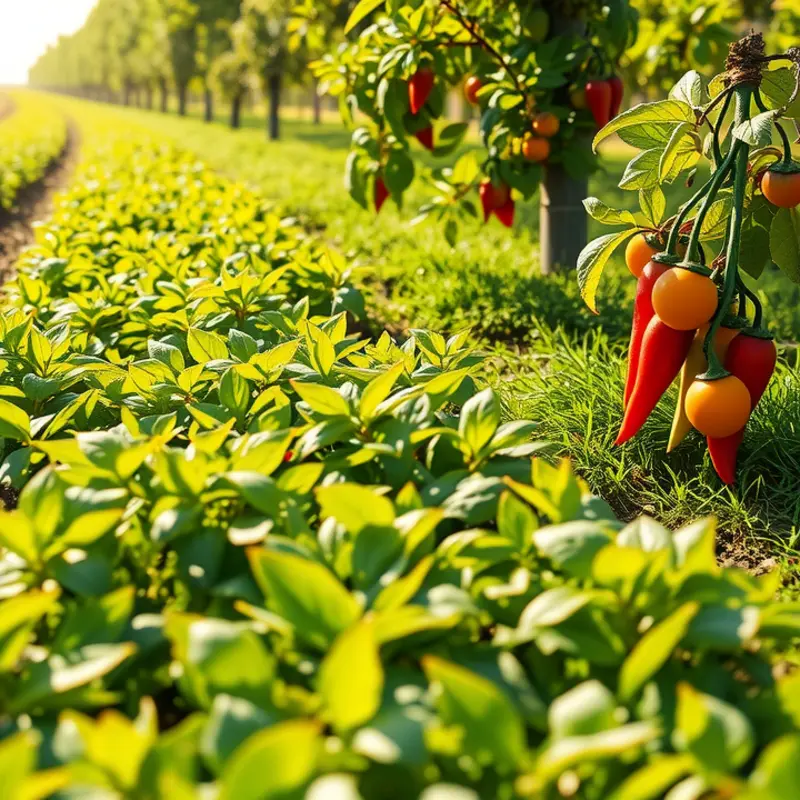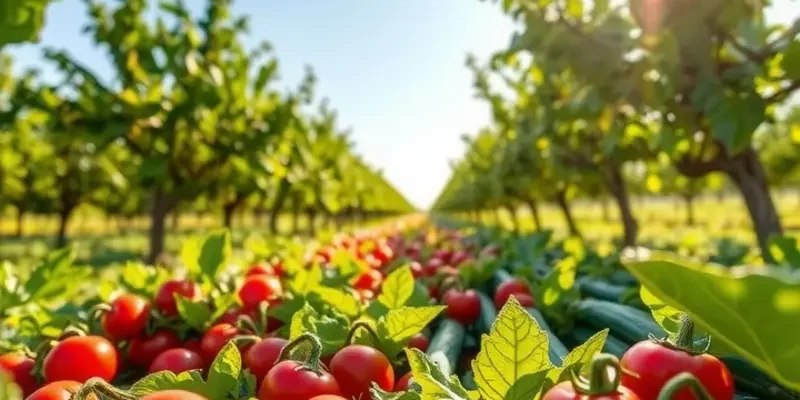In a world increasingly focused on sustainability, condiment choices can have a surprisingly significant impact on our environment. From classic ketchup to exotic sauces, the options we select can either support sustainable practices or contribute to waste and pollution. For those committed to eco-friendly food choices, understanding the origins and ingredients of your condiments is essential. By embracing natural, locally sourced, and ethically produced condiments, you can enhance your meals while making a positive impact on the planet.
The Rise of Sustainable Sauces

Sustainable sauces are emerging as powerful allies in the quest for eco-conscious dining. By focusing on local ingredients, organic farming, and innovative processing, these condiments promise low carbon footprints and delicious flavors. As modern climate awareness grows, the demand for these sustainable alternatives is reshaping our condiment choices.
Ketchup, a pantry staple for many, is undergoing a green revolution. Sustainable varieties prioritize locally sourced tomatoes, reducing transportation emissions and supporting local agriculture. Organic farming methods further enhance their eco-friendliness by minimizing harmful chemicals and promoting biodiversity. Some brands have innovated by using discarded ‘ugly’ vegetables, transforming potential waste into culinary treasure.
Mustard lovers are also witnessing a delightful shift. Sustainable mustards often leverage organic, non-GMO seeds and natural fermentation processes. This not only reduces environmental impact but also enriches the mustard with probiotic benefits, enhancing both taste and health. Spices and herbs used in these mustards are sourced responsibly, ensuring environmental and social responsibility.
Hot sauces, known for their fiery kick, are not exempt from this sustainable makeover. By embracing solar energy and water-saving techniques in production, these sauces lead by example in eco-friendly practices. Locally grown chili peppers replace imports, ensuring a fresher, lower-carbon-footprint product. Some producers have even incorporated packaging innovations, using recyclable or biodegradable materials to further lessen environmental impact.
These sustainable sauces are part of a broader movement towards mindful consumption, resonating with consumers eager to make a positive change. The shift is not just about an ethical choice; these sauces offer a culinary depth that is often lacking in mass-market options. Their reliance on quality, fresh ingredients frequently leads to superior taste and nutritional profiles, which is a win-win situation.
For the environmentally conscious, choosing sustainable sauces aligns with broader efforts to reduce dietary ecological harm. Exploring these options may align with efforts to adopt more sustainable eating practices. As with any shift, education is key. For those interested in diving deeper into the nuances of eco-friendly food choices, the NutriHub article on Reducing Dietary Ecological Harm can provide valuable insights.
Ultimately, the rise of sustainable sauces symbolizes a shift in culinary practices towards greater ecological responsibility. This growing trend showcases how even small changes in our daily habits, like the condiments we choose, can contribute to a more sustainable future. As innovators continue to push the boundaries of what is possible, these tasty green alternatives offer hope and excitement for a planet-friendly dining experience.
DIY Condiments: Empowering Your Kitchen

Creating your own condiments at home offers the freedom to control ingredients and reduce waste. By using local, organic ingredients, you avoid harmful preservatives and contribute to sustainable food practices. Let’s explore some easy recipes for popular condiments: barbecue sauce, aioli, and dressings.
Barbecue Sauce
A homemade barbecue sauce provides the perfect balance of tangy and sweet flavors. Start with a base of organic tomato paste, which can be easily found at local markets. Add apple cider vinegar to introduce acidity and depth. For sweetness, opt for natural sweeteners like honey or molasses, which provide a rich, caramel-like complexity. You can find tips on reducing banana spoilage which might help with future banana-based sweeteners here. Incorporate organic spices such as smoked paprika, mustard powder, and garlic for a robust taste. Tailor the spice level to your preference with chili powder or fresh chili peppers if you’re adventurous. Simmer these ingredients together, stirring until the mixture thickens to your likeness.
Aioli
Creamy and versatile, aioli is incredibly simple to prepare. Begin with farm-fresh eggs to ensure quality and safety. Blend the yolks with freshly minced garlic, and slowly incorporate extra virgin olive oil while whisking continuously. This slow trickle creates a silky, emulsified sauce. Add lemon juice or apple cider vinegar for a mild tang, then sprinkle in salt and pepper to highlight the flavors. Customize your aioli with herbs like basil or cilantro for added freshness. Use this condiment as a spread, dip, or dressing to add a gourmet touch to any dish.
Dressings
Crafting your own dressings guarantees freedom from chemical additives. Start with a base of apple cider vinegar or lemon juice and blend with premium extra virgin olive oil for a simple vinaigrette. Enhance the basic mixture with Dijon mustard to create a creamy texture and robust flavor. Sweeten to taste using natural alternatives like maple syrup or agave nectar, ensuring a balance that complements leafy greens perfectly. Experiment with spices or herbs such as oregano, dill, or thyme for a personalized touch.
By making condiments at home, you can minimize plastic waste by storing them in reusable glass jars or bottles. The creative process allows you to explore unique flavors while maintaining control over nutritional content. Additionally, you’re supporting local agriculture by selecting organic, locally grown ingredients when possible.
Embrace the power of making your condiments, knowing every bite reflects your commitment to sustainability and quality. Not only do you gain culinary freedom, but you also contribute to an eco-friendly lifestyle that benefits the environment and your well-being.
Final words
Transitioning to sustainable condiment choices can significantly benefit the environment and your health. By opting for condiments made from organic, locally sourced ingredients or crafting your own, you reduce your carbon footprint and support eco-friendly practices. The journey toward sustainability starts on your plate, and every small change counts. So, let your condiments reflect your commitment to caring for the planet—your taste buds and nature will thank you.








